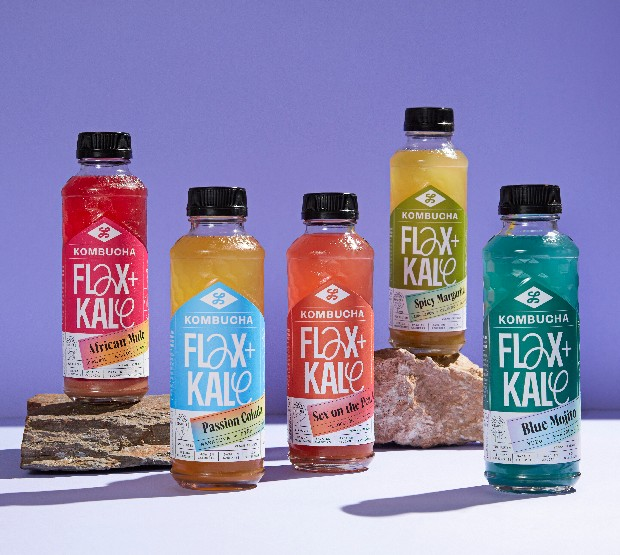In this post we will explain what palm oil is, why it is so important in the food industry and the reasons why it is not recommended at all , both for health and for environmental sustainability.
Palm oil is the most widely used in the world, ahead of soybean and rapeseed oil, with approximately a third of the total vegetable oil consumed worldwide. This oil is displacing hydrogenated fats, which have beenproven harmful to health. However, this oil is very rich in saturated fat, so it is far from being an ideal alternative from the point of view of nutritional balance and it is preferable not to abuse it. And not only this, but whate production is also worrying, since it entails environmental and social excesses.
A few years ago, many Europeans began to find a new ingredient on labels that had been on their labels for decades.daily diets without many knowing. The change in the legislation that came into force in December 2014 forced to stop hiding the type of oil they used under the label of "vegetable oil" and to specify the specific originof the fats used. And some consumers began to realize that many of the products they consume every day had palm oil in their composition. It is estimated that on average each European consumes 60 liters of palm oil, with whiche we get an idea that the consumption of this fat is almost runaway due to its unconscious ingestion by the consumer.
What is palm oil?
Palm oil is obtained from the pressing of the fruits of the African palm (Elaeis guineensis) or Guinea palm, and is cultivated in tropical countries where they often representIt is an important foundation for local economies. The main producers are Indonesia and Malaysia, concentrating 85% of world production.
It is composed of 50% saturated fatty acids, especially palmitic acid and acidstearic. Mainly, its use in the food industry is due to the fact that it is an inexpensive and versatile oil and, its solid condition at room temperature and its unctuous texture, allows it to substitute butter or hydrogenated fats of many products.processed products. Besides, thanks to the qualities above all of palmitic acid, which is a stabilizer and powerful antioxidant, it is an excellent preservative.
Due to its characteristics, in a short time, it has become a matteA raw material used globally for the production of a large number of products for the food industry. Its use is so widespread that it is estimated that it is present in more than half of the products that can be found in a supermarket: nougat, cookies, chocolates, snacks, pastries, margarines ...
How does it affect our health?
Although palm oil became widespread from the 1970s as a substitute for controversial trans fats, its impact on health has also been called into question.on. A study by the United States Department of Agriculture (USDA) published in 2009 ensures that the oilPalm is not a healthy substitute for hydrogenated fats.
Like most high-melting saturated fats (such as dairy and animal), palm oil consumed in excess poses a potential risk of disease.cardiovascular slogans. Increase blood called cholesterol "bad" or LDL, and decrease "good" or HDL.
Besides, aarticles/nature20791.epdf?referrer_access_token=OHxqMLiNUNQoOLiaBBLjUdRgN0jAjWel9jnR3ZoTv0PXgBJ7gTORH9oXZrcpIj5GFemYgZ1JGBepivmsFu5-F9-ZbUeUGkl5TyI2fTf2ni1ylEkX9c1KQxa6kpJotniMTnMErEBrD0ZRzBuwie9WH5wPR2Xcz1Vw25TW6lXZj-Z1x5vjn">estudio reciente, prepared by Catalan researchers, has discovered that fats, especially saturated fats from palm oil, increase the risk of metastasis by 15%, that is, cancer cells invade other organs. The study sIt has been done with 30 oral cancer patients, but the results also apply to people with melanoma and breast cancer. In any case, more studies are needed to decipher this relationship, especially by industrialized countries thatthey are registering an alarming increase in the consumption of saturated fat and sugar.
How does it affect the environment?
Palm oil has been under the spotlight of international public opinion for decades due to its high social and environmental impact. With its production mainly concentrated in Malaysia andIn Indonesia, plantations compete with the lush rainforests of Southeast Asia and have led to the deforestation of millions of hectares. The animals that inhabit these forests are their main victims and many of them, such as the oRangutan, they may not survive the expansion of this industry.
To avoid this type of fat, you should only eliminate pre-cooked foods, industrial pastries and other processed products from your diet. Prepare food at homea with healthier oils such as olive . If you can't avoid supermarkets, choose palm oil-free products. And make your family and friends aware of this problem.






